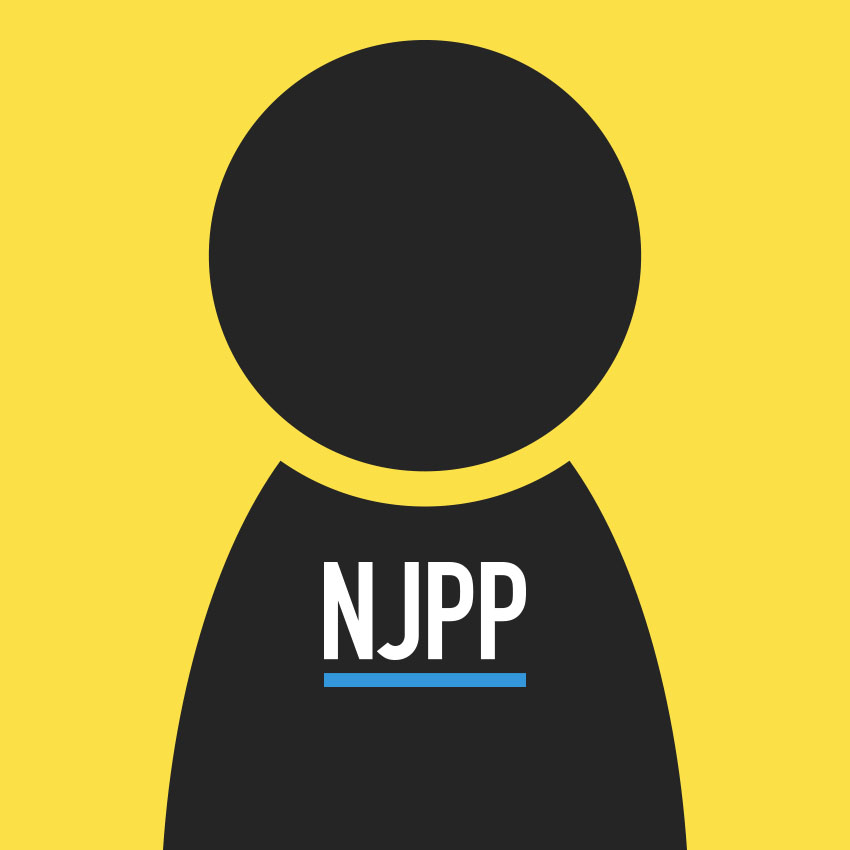
For The Many NJ coalition applaud Governor Murphy and legislative leaders for rejecting austerity and setting a strong foundation for New Jersey’s COVID-19 recovery.
September 29, 2020 – New Jersey’s leading advocates for working families applauded the state budget signed into law earlier today by Governor Phil Murphy. The budget for Fiscal Year 2021 balances revenue shortfalls brought on by COVID-19 with a combination of borrowing and tax increases on the state’s wealthiest residents and biggest corporations. This will allow the state to maintain investments in key programs and services that will help New Jersey ultimately recover from the pandemic.
“Today is a historic moment for New Jersey, as the state tax code is getting a lot fairer — and for good reason,” said Sheila Reynertson, Senior Policy Analyst at New Jersey Policy Perspective (NJPP). “Income inequality is at an all-time high, and for far too long, lawmakers failed to address this in a meaningful way. Today, that changes. The millionaires tax will help New Jersey maintain investments in crucial assets like education while responding to the COVID-19 health crisis without further worsening economic and racial inequality. We truly are setting an example for the nation on how to build an economy that works for all of us, not just a chosen few.”
Unlike state budgets passed during the last economic downturn, the budget signed today rejects austerity measures and instead calls on New Jersey’s wealthiest individuals and biggest corporations to pay closer to their fair share in taxes.
“We applaud the Governor’s leadership and the legislature’s willingness to take a stand for the 99% of New Jerseyans who will benefit from this budget,” said Sue Altman, Executive Director of the New Jersey Working Families Alliance. “May this be the first step toward long term budgetary thinking and fairness in our state.”
The budget includes a millionaires tax — which raises the marginal income tax rate on earnings over $1 million from 8.97% to 10.75% — and extends the corporate business tax surcharge. This follows recommendations made by the For The Many NJ coalition and more than 90 economists who warned the legislature last month against harmful cuts.
“This budget marks an important step forward in addressing longstanding racial and socioeconomic inequities in our tax code, with millionaires and the wealthiest of corporations finally paying their fair share and an expansion of Earned Income Tax Credits,” said Dena Mottola Jaborska, Associate Director for New Jersey Citizen Action. “But we have a lot more to do, and we look forward to working closely with Governor Murphy and the Legislature to ensure state budget policy meets our most pressing pandemic needs while also making smart investments in our future. These priorities include assisting immigrants excluded from federal pandemic relief, restoring New Jersey’s fiscal health, and ensuring all New Jerseyans have access to programs and services they need to both survive and prosper.”
The budget is far from perfect, however, as there remains more work to be done to advance racial equity and ensure no one is left behind in New Jersey’s pandemic recovery. This includes providing support to the state’s undocumented immigrants and residents living in mixed status households who were shut out from receiving state and federal COVID-19 relief.
“Today’s budget signing is a historic but incomplete victory for tax fairness and equity,” said Sara Cullinane, Director of Make the Road New Jersey. “A half-million undocumented immigrants and potentially 225,000 US citizens will see nothing in COVID aid. Many of these families have survived more than six months without income or a penny in government relief. We urge the legislature and Governor Murphy to provide COVID relief for excluded workers and their families and make sure these families are included in the tax rebate. It is unjust to leave more than a half-million New Jerseyans behind.”
“New Jersey’s immigrant families have gone six months living with increasing economic insecurity every day,” said Maneesha Kelkar, Interim Director of New Jersey Alliance for Immigrant Justice. ”Despite the gains made by Governor Murphy’s budget, immigrants remain excluded, without unemployment benefits or COVID19 relief. A balanced and fair budget must include all residents, regardless of immigration status, so that every household can get their basic needs fulfilled.”
Members of For The Many NJ coalition made the following statements in support of the budget and millionaires tax:
Marie Blistan, President, New Jersey Education Association “We are pleased that this consensus budget prioritizes the needs of students, their families, and all hardworking New Jersey residents. Its emphasis on fiscal responsibility and tax fairness will help ensure that New Jersey emerges stronger from this current crisis, with a firm foundation for future fairness and prosperity.”
Renee Koubiadis, Executive Director, Anti-Poverty Network of New Jersey “The Anti-Poverty Network of New Jersey is pleased to see the inclusion of a true millionaires tax and the continuation of a fair corporate business tax in the state budget. These steps move New Jersey towards real tax fairness with crucial new revenues, rather than putting an unfair burden on middle and low-income residents for our state’s recovery. During this unprecedented health and economic crisis, these real investments in all of our state’s residents are needed to see valuable returns in our state’s economy and for New Jersey to be a place where all of our residents can recover and thrive.”
Brandon Castro, Campaign Organizer, New Jersey Work Environment Council “After years of advocacy, the Work Environment Council is happy to see the New Jersey State Government prioritize economic justice and tax fairness, and finally pass a millionaire’s tax. We hope that this will only be the beginning and that the state will continue to move away from austerity measures in times of economic crisis, and towards a more just, democratic economy for everyone.”
Doug O’Malley, Director, Environment New Jersey “State agency funding is critical, and the final budget ensures we won’t see furloughs in key state agencies like the NJDEP. We are grateful for the investments in lead remediation, which reduces lead in children’s blood, and the full funding for RGGI and EV rebates to electrify vehicles and to clean our air. The increased investments of the Corporate Business Tax, which worked to clean contaminated toxic sites more than 20 years ago, is a win for investing in the public good. We need in the next budget cycle to finally end the ongoing raids of the Clean Energy Fund and dedicate funding to NJ Transit.”
Amy Goldsmith, NJ State Director, Clean Water Action “At a time when New Jersey’s working families are hurting, our climate is in crisis, and our state is still fighting COVID-19, we are glad to see Governor Murphy and legislature pass the millionaires tax. This is just the beginning of a more progressive budget. From clean energy and respiratory disease, to lead in drinking water and raw sewage in waterways, critical programs are underfunded, and that’s why it is important to have everyone, especially millionaires, pay their fair share.”
Jeff Tittel, Director, New Jersey Sierra Club “This final budget restored key funding to important environmental programs. The budget eliminates some of the raids and one-shots that hurt the environment. This means there’s more money to make sure our air is clean, water is pure, and that we can clean up toxic sites. The budget restored $10 million for removing lead paint from homes and $22 million for the Recycling and Clean Communities Trust Funds, which will help implement the statewide plastic bag ban. NJ Transit saw an increase as well. There will also be more money for programs like open space, parks, cleaning up underground storage containers and contaminated sites, and watershed protection. This is because the Corporate Business Tax is increasing, and 6% of the CBT is dedicated to environmental programs. This budget has been an improvement for the environment and the people of New Jersey.”
Marcia Marley, President, BlueWaveNJ “BlueWaveNJ congratulates Governor Murphy and the legislature for creating a more equitable and fiscally responsible budget. Increasing revenue from millionaires and wealthy corporations rather than cutting services will preserve critical support for struggling New Jersey families and lessen the pandemic’s economic impact. The budget’s continuing investments in future generations will help lay the foundation for a stronger recovery. While we applaud many aspects of this budget, there is further work to be done. We look forward to working with the legislature and Governor to make sure no group is left behind.”
Barry Kushnir, President, Hudson County Central Labor Council and IFPTE Local 194 “The Hudson County Central Labor Council and IFPTE Local 194 are proud to support a state budget that includes tax fairness in a Millionaire’s Tax and Corporate Business Tax extension. Both are prudent and reasonable policies to raise much-needed revenue in an unprecedented crisis by asking those with the most to pay their fair share. While this is good news, our organizations remain committed to advocating on behalf of the many New Jersey families who continue to suffer inequality and will not relent in our pursuit of a budget that works for all.”
Leslie Bockol, Co-Executive Director, New Jersey 11th For Change “For too long, tax policies (and tax loopholes) on the state and national level have been skewed to favor those in the top fraction of a percent in wealth and income. For too long, the state budget has been balanced disproportionately on hard-earned money that working people have needed to cover basic necessities — not luxuries — to build a secure future for their families. We are gratified to see Governor Murphy sign this historic bill into law today, and proud that New Jersey is leading the way on tax fairness!”
Kevin Brown, New Jersey State Director, 32BJ SEIU “We applaud the passage of a ‘millionaires tax’ which asks residents best able to contribute to do their part for our economic recovery. At the same time, our essential workers have sacrificed everything throughout this crisis. We need our state to recognize that the federal aid available to many working families for part of this year has been out of reach for immigrant families, who occupy a large share of essential jobs. It’s only right for our state to step in to provide some income replacement for them.”
For The Many is a statewide coalition of more than 40 organizations working to expand funding for essential services and improve budget practices to meet current and future needs, especially for communities that have been historically marginalized.
# # #


